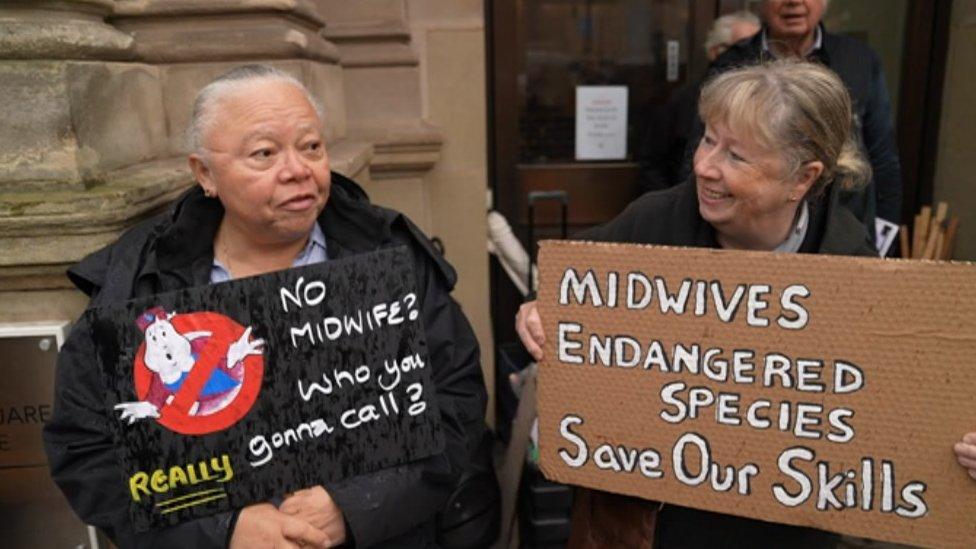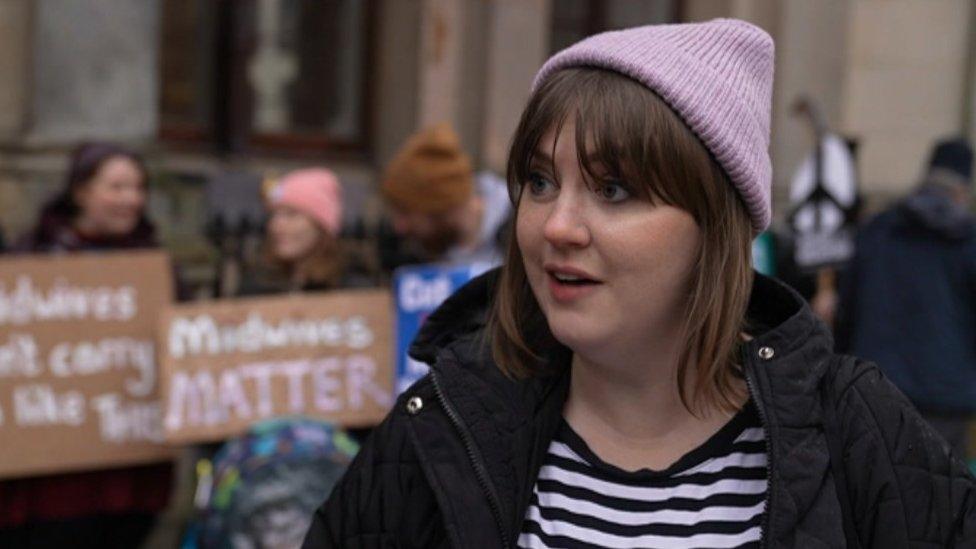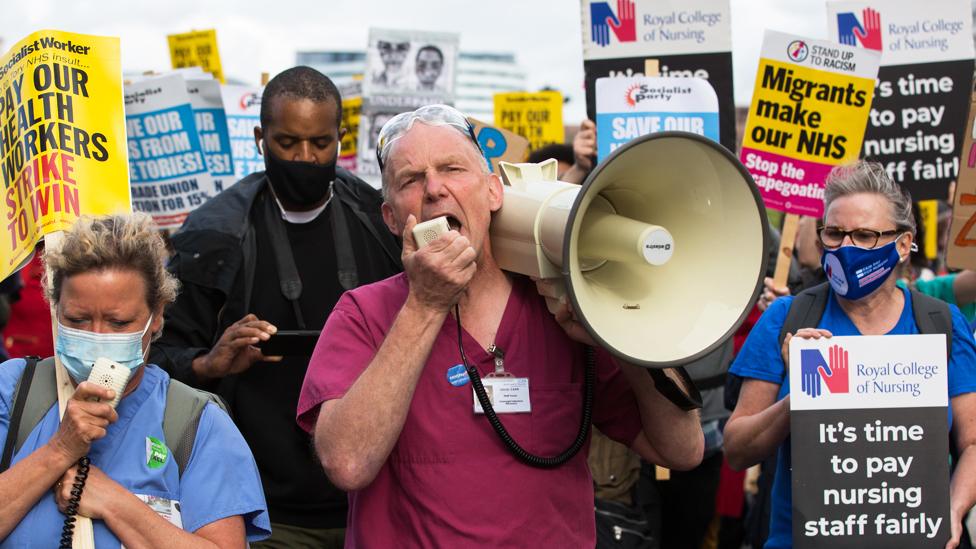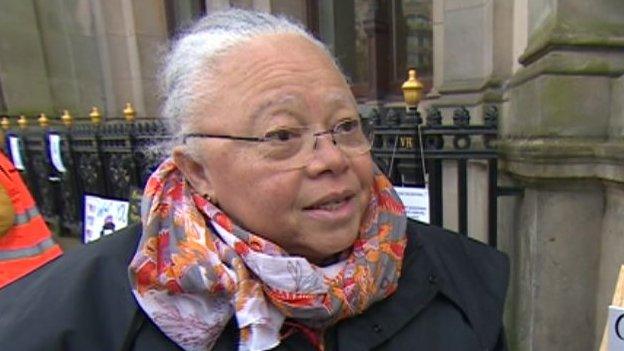March for Midwives protest in Birmingham over lack of staff and pay
- Published

Members of March for Midwives said the number of midwives have continued to fall since their last protest in 2021
Midwives and others have demonstrated to highlight what they call a crisis in maternity services.
The campaigners in Victoria Square, Birmingham, from the March for Midwives movement said the number of midwives have continued to fall in England.
"There's not enough staff to be able to safely care for women and their babies," midwife Rosie Day said.
The government said it was investing £127m into maternity services to boost the workforce and improve care.
The first March for Midwives demonstrations took place in 2021 and the group said staff have continued to leave the NHS over the past year.
"Women's demands cannot be fully met because we don't have the time to deliver it certainly inside the NHS it is a massive problem," midwife Elsie Gayle said.

Midwife Rosie Day said some of her colleagues have to use food banks as their pay has not taken inflation into account
Earlier this year, the Royal College of Midwives warned falling midwife numbers risked the health of staff, mothers and babies.
It has begun a ballot of members for industrial action over pay as it said staff were struggling in the cost-of-living crisis.
"I don't feel [the pay] reflects the level of responsibility that we have but also it doesn't reflect inflation," Ms Day said.
"Even though we've been gifted a pay award, it's actually a pay cut and with the cost-of-living crisis as well, we've got some midwives that actually have to go to food banks to survive."
A Department for Health and Social Care spokesperson said its investment in maternity services was "on top of £95m for 1,200 new midwife roles and 100 consultant obstetricians".
They added the government has given more than a million NHS workers a pay rise of at least £1,400 this year on top of a 3% increase in 2021.

Follow BBC West Midlands on Facebook, external, Twitter, external and Instagram, external. Send your story ideas to: newsonline.westmidlands@bbc.co.uk, external
Related topics
- Published9 November 2022

- Published16 August 2022

- Published21 November 2021
